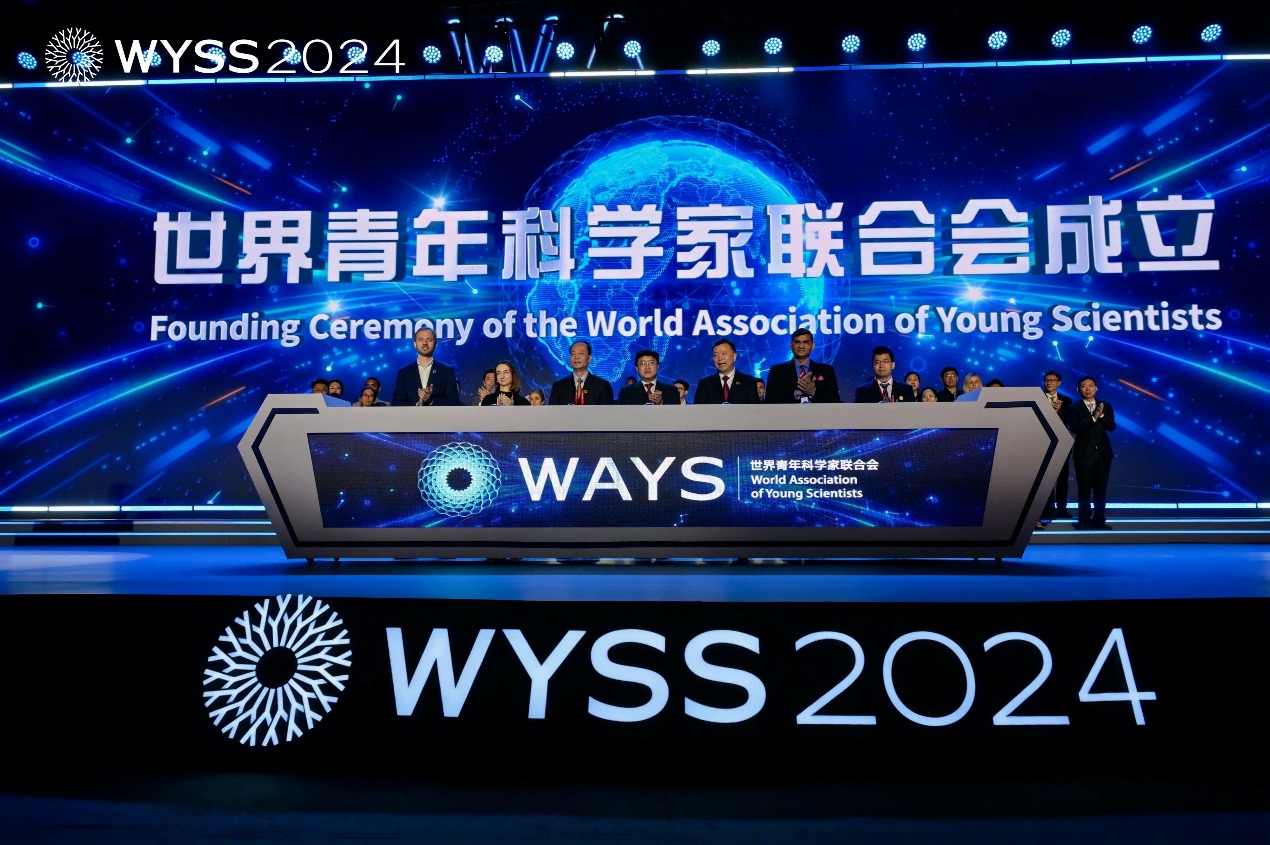World Association of Young Scientists established at WYSS 2024

Photo credit: WYSS 2024
The plenary session of the 2024 World Young Scientists Summit (WYSS 2024) took place in Wenzhou, East China’s Zhejiang Province on November 17, 2024.
A significant milestone was reached with the inauguration ceremony of the World Association of Young Scientists.
The association, an international, academic, non-profit organization, is dedicated to fostering knowledge and cultural exchange among young scientists. It aims to promote interdisciplinary and cross-regional collaboration, explore the potential of sci-tech applications in addressing global challenges, and amplify the voices and contributions of young individuals in advancing sustainable development through technological innovation.
The founding membership of the association comprises 46 entities, including higher education institutions, research institutes, and business alliances.
These members span 23 countries across Asia, Europe, America, and Africa, with expertise in various disciplines including physics, chemistry, medicine, earth space, and ecological environment.
Lu Chaoyang, Executive Director of the Shanghai Institute for Advanced Studies at the University of Science and Technology China (USTC), was elected as the President of the Association. Gao Chunbo, Deputy Director of the Service Center for Enterprise Innovation of the China Association for Science and Technology (CAST), was elected as Vice President and Secretary General.
Moving forward, the association will concentrate on activities including WYSS, facilitating exchanges and visits for young scientists from various countries, and establishing a platform for global young scientists to exchange and collaborate.
Additionally, it will conduct outreach and science popularization activities to support sustainable development through science and technology. These initiatives are designed to attract and inspire young scientists worldwide, enhance their cross-cultural communication skills, and encourage their active involvement in global sci-tech governance.
Source: Guangming Daily
